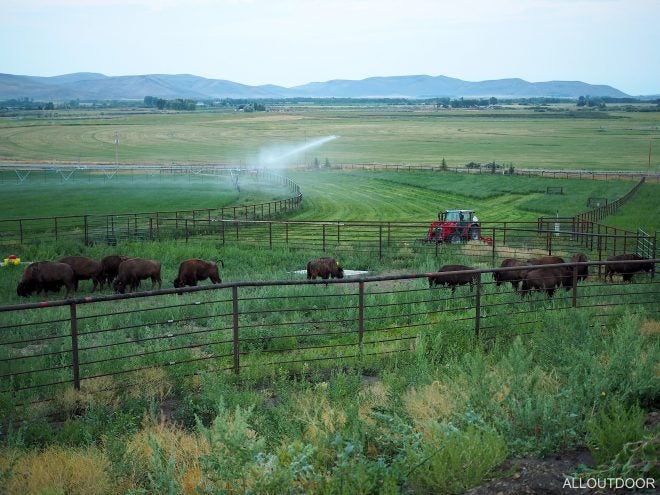Home on the Range #027: Ward Off Bloodsuckers w/ Garlic; Not Vampires
RusDs 01.14.22

Fly mitigation and pest control in an organic or no-spray farming/ranching situation can be tricky. The common solution of dumping a bunch of synthetic chemicals over your property or livestock cannot be used. Though I had used fly predators to great and successful effect to nearly eradicate horseflies around my pastures, horn flies were still a scourge of my livestock until I found an easy and effective solution in garlic.
Welcome to our reoccurring series of “Home on the Range.” Here, we would like to share all of our experiences for those who may be homesteading, living off the land, hunting, farming, ranching, and truly investing in nature and the great outdoors. The ability to provide for yourself and your family can be tremendously rewarding and simultaneously difficult at times. So, in “Home on the Range” we want to share our different exploits so you can learn and hopefully we can receive your feedback along the way as well.
My bison dealing with horn flies in the cooler weeks after a roasting summer. When manure is too dry or too wet, horn flies can’t breed as well. Breaking up manure can reduce numbers, but it doesn’t do much good if neighboring operations don’t do their part, too.
The scientific name of the horn fly is “haematobia irritans” which translates to “irritating bloodsucker,” and that’s what they are. Not only do they feast on blood from livestock, but they also can ruin their hides by transmitting a subdermal nematode that can cause a granular rash on livestock. An experienced agricultural mentor of mine advised me to count how many times per minute my stock were throwing their head to get the flies off, in order to realize how much irritating fly clouds impacted their grazing. Unfortunately, it was a significant amount, which was no doubt impacting their nutrient intake during the preciously short time we have grass instead of snow on the ground. I specialize in raising bison, and did not want to erect any topical treatment rub bars that would just get destroyed in a day. Therefore, I searched around for another solution.
Oh, Canada!
The place where I got the idea to use a garlic powder infused mineral is from an excellent study done by the University of Saskatchewan and Lakeland College of Alberta. In a 2017 study, the researchers found that a group of cattle fed trace minerals infused with garlic powder demonstrated an over 50% reduction in fly loads and fly-avoidance behavior. The key compound in garlic that repels flies is allicin. When certain mammals ingest garlic, they convert Alliin into the enzyme Allicin. Allicin pushes to the skin surface, and repels insects, along with other benefits such as improving vascular health. Fortunately for me, Redmond Agriculture had just recently come out with a mix of their “10 Fine” mineral that incorporates garlic powder and is OMRI certified as well. Redmond 10 Fine with Garlic is easily available at most agricultural supply stores throughout the United States (or at least it was when I bought it; like many things in this world these days, it may be out of stock for periods of time).
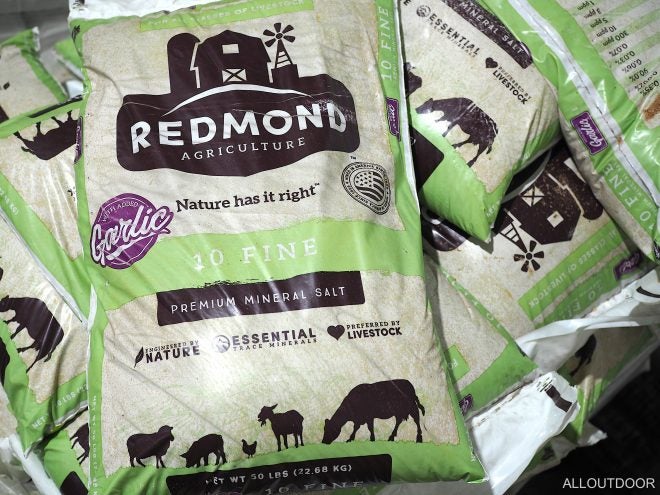
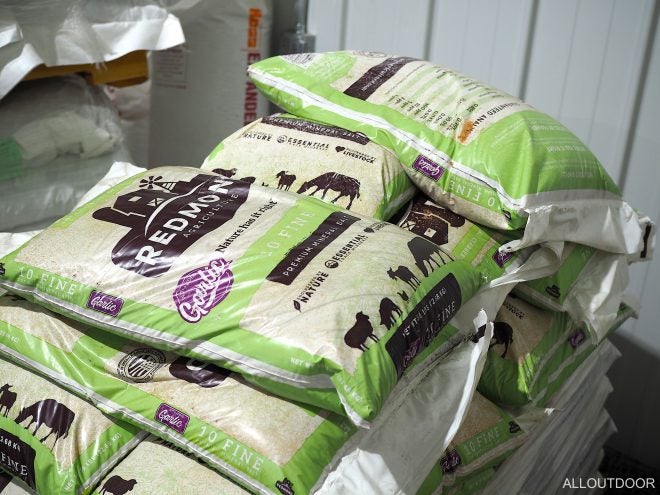
Fast Results with Garlic
Once we fed the 10 Fine with garlic powder, we saw results in about 24 – 48 hours. There was an immediate and dramatic reduction in horn flies on the flanks of my bison, and they could focus on grazing a lot more. I would concur with the over 50% reduction in fly avoidance activity based on my personal observations of my own herd. Furthermore, the cost per animal was minimal, as the garlic is incorporated already in selenium supplements that one would give a bovid. I did not notice any difference in the flavor of the meat (though I slaughtered 2 months after their last ingestion of garlic infused minerals), nor have I heard of any dairy flavor impact when using this treatment with dairy cows. I also did not see any reduction in mineral uptake reluctance from my herd once I switched from the selenium supplement without garlic to the one with garlic, and vice versa.
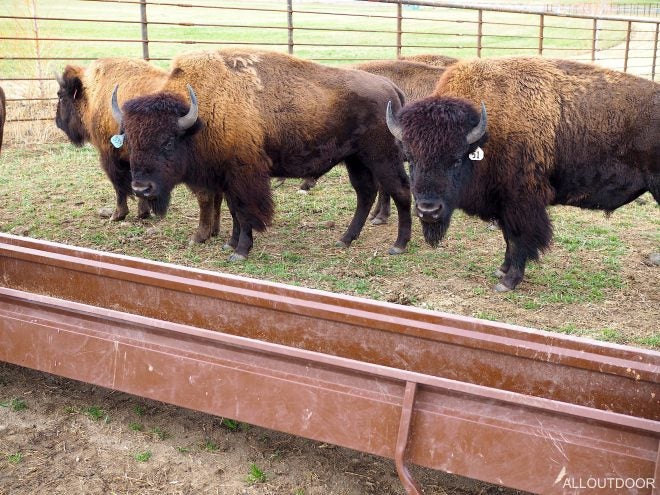
Here is one caveat: do not give garlic powder to just any animal. Certain species like canines cannot tolerate garlic and it can be a toxin to them. Be sure to consult your veterinarian before supplementing the diet of any animal. For my bison; however, the garlic powder provided a fast, organic, and easy to apply way to further control horn fly numbers on my herd, and gave my animals lots more time for carefree grazing. I highly recommend it.
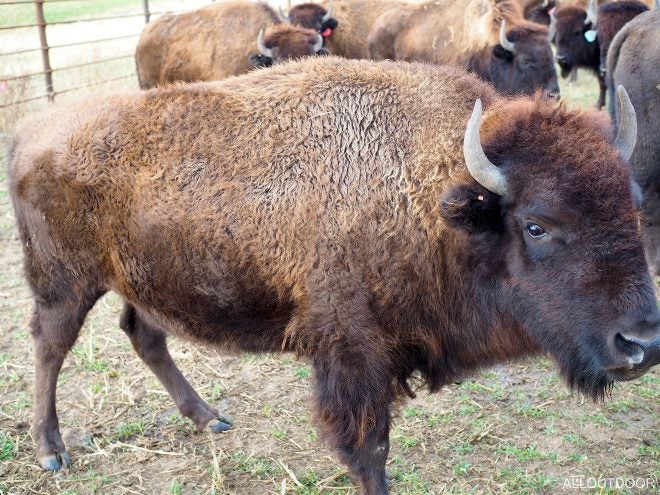
For more in depth information, I highly recommend reading the academic study. Though too lengthy to post here, it can be found in PDF format online. Redmond 10 Fine with Garlic
